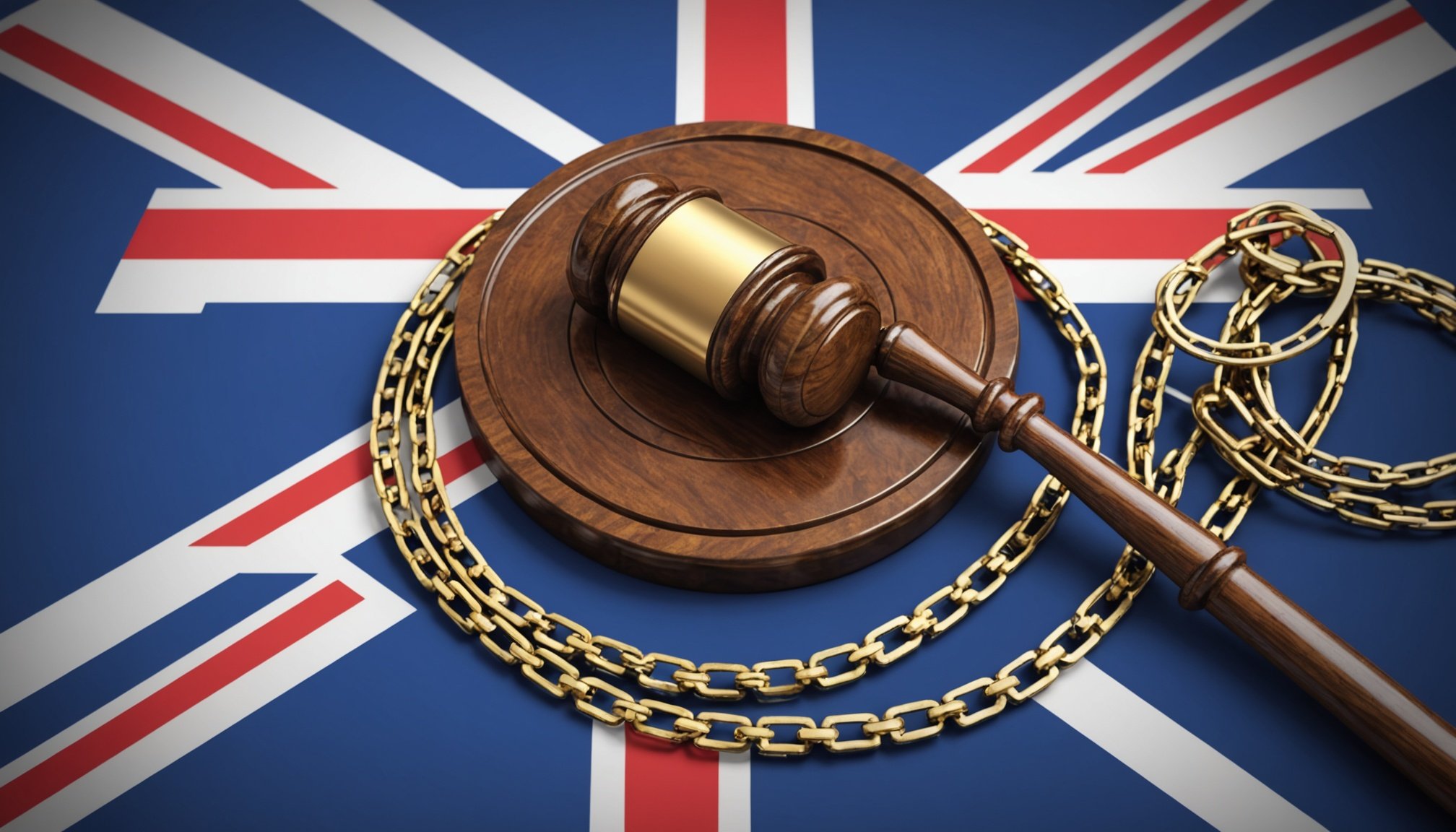Unlocking Blockchain: Legal Considerations for UK Companies in Supply Chain Management
As the world of supply chain management continues to evolve, blockchain technology has emerged as a game-changer, offering unparalleled transparency, security, and efficiency. For UK companies, however, navigating the legal landscape while leveraging blockchain is crucial. Here’s a comprehensive guide to help you understand the legal considerations and how to harness the full potential of blockchain in your supply chain operations.
Understanding Blockchain Technology in Supply Chains
Before diving into the legal aspects, it’s essential to grasp how blockchain technology works and its benefits in supply chain management.
This might interest you : Exploring the Legal Considerations for UK Companies Partnering with Third-Party Logistics for Global Shipping
Blockchain technology is based on a decentralized, immutable ledger that records transactions across multiple nodes. This feature is particularly valuable in supply chains, where tracking the origin and movement of goods is critical. Smart contracts, which are self-executing contracts with the terms of the agreement written directly into code, further enhance the efficiency and transparency of supply chain operations.
For instance, IBM’s Food Trust blockchain network allows companies to track food products from farm to table, ensuring food safety and enabling quick identification of any issues. Similar traceability can be applied to various other industries, such as pharmaceuticals, electronics, and textiles.
Topic to read : Understanding the Legal Landscape: Impacts of Third-Party Cookie Tracking on UK Businesses
Legal Considerations for UK Companies
Regulatory and Compliance Issues
One of the primary challenges UK companies face when adopting blockchain technology is navigating the regulatory and compliance landscape. The legal framework surrounding blockchain is still evolving, and this uncertainty can complicate compliance efforts.
- Regulatory Uncertainty: The UK’s regulatory environment is not yet fully defined for blockchain. This ambiguity can hinder adoption as companies struggle to ensure they meet all necessary legal requirements.
- Compliance Complexity: Navigating regulations requires significant resources. Companies must ensure that their blockchain solutions comply with data protection regulations such as the GDPR, as well as other industry-specific regulations.
Data Protection and Privacy
Data protection is a critical aspect of supply chain management, especially when using blockchain technology. Here are some key considerations:
- GDPR Compliance: Blockchain solutions must comply with the General Data Protection Regulation (GDPR). This includes ensuring that personal data is processed securely and that individuals have the right to access and control their data.
- Data Integrity: Blockchain’s immutability ensures that data remains tamper-proof, which is a significant advantage in maintaining data integrity. However, this also means that any errors or inaccuracies in the data cannot be easily corrected.
Contract Law and Smart Contracts
Smart contracts are a cornerstone of blockchain technology in supply chains, but they also raise legal questions.
- Enforceability of Smart Contracts: The enforceability of smart contracts is still a subject of debate. While smart contracts can automate many processes, they must be drafted in a way that aligns with existing contract law to ensure they are legally binding.
- Jurisdictional Issues: With global supply chains, jurisdictional issues can arise. It is crucial to determine which laws will govern the smart contracts and ensure that they comply with the laws of all relevant jurisdictions.
Practical Applications and Benefits
Despite the legal complexities, the benefits of using blockchain in supply chain management are substantial.
Transparency and Traceability
Blockchain technology provides real-time transparency and traceability, which are essential for building trust in supply chains.
- Real-Time Tracking: Companies can track goods in real-time, from the source to the final delivery. This enhances transparency and allows for quick identification of any issues that arise.
- Supplier Verification: Blockchain can store verified supplier credentials and compliance records, making it easier to ensure that suppliers meet regulatory and contractual requirements.
Security and Fraud Prevention
The decentralized and immutable nature of blockchain makes it highly secure.
- Fraud Prevention: Blockchain can help mitigate risks such as supplier fraud, counterfeit goods, or unauthorized access to sensitive contract information. Transactions recorded on the blockchain are encrypted and spread across multiple nodes, making any attempt to alter data easily detectable.
- Secure Document Sharing: Blockchain-based security features can be implemented to secure document sharing and supplier verification, reducing the likelihood of breaches.
Case Studies and Examples
Several companies have already seen significant benefits from implementing blockchain in their supply chains.
IBM Food Trust
IBM’s Food Trust blockchain network is a prime example of how blockchain can enhance food safety and traceability. By tracking food products from farm to table, companies can quickly identify and address any safety issues, ensuring consumer trust and compliance with regulatory requirements.
Pharmaceutical Industry
In the pharmaceutical industry, blockchain can be used to track the origin and movement of drugs, ensuring that they are genuine and have not been tampered with. This is particularly important for maintaining patient safety and complying with stringent regulatory requirements.
How to Apply Blockchain in Your Company
Conducting a Blockchain Pilot Project
To start leveraging blockchain, consider conducting a pilot project focused on tracing high-value or critical goods.
- Choose the Right Platform: Platforms like VeChain or IBM Blockchain offer tailored solutions for supply chain traceability. These platforms can help ensure that goods are ethically sourced and suppliers adhere to contractual obligations.
- Integrate with Existing Systems: Ensure that the blockchain solution integrates seamlessly with your existing systems to maximize its benefits. This includes integrating with ERP systems, inventory management, and other supply chain tools.
Implementing Blockchain-Based Security Features
Implement blockchain-based security features to secure your procurement process.
- Secure Transactions: Use blockchain to secure high-risk or high-value transactions. Platforms like Hyperledger Fabric offer customizable blockchain solutions that provide end-to-end security and visibility for procurement processes.
- Supplier Verification: Leverage blockchain platforms like Trust Your Supplier to manage supplier identities and compliance records. This helps with supplier onboarding and ensures ongoing compliance with procurement policies.
Table: Benefits of Blockchain in Supply Chain Management
| Benefit | Description |
|---|---|
| Transparency and Traceability | Real-time tracking of goods from source to delivery, enhancing trust and compliance. |
| Security and Fraud Prevention | Decentralized and immutable ledger reduces risks of fraud and unauthorized access. |
| Supplier Verification | Verified supplier credentials and compliance records stored on the blockchain. |
| Cost Reduction | Automated payments and reduced paperwork lead to cost savings. |
| Data Integrity | Tamper-proof data ensures accuracy and reliability. |
| Regulatory Compliance | Ensures compliance with data protection regulations like GDPR. |
| Smart Contract Automation | Automates contract execution, reducing errors and enhancing efficiency. |
Blockchain technology holds immense potential for transforming supply chain management by offering transparency, security, and efficiency. However, UK companies must navigate the complex legal landscape to fully harness these benefits.
Key Takeaways
- Understand Regulatory Requirements: Ensure compliance with evolving regulatory frameworks and data protection laws.
- Integrate with Existing Systems: Seamlessly integrate blockchain solutions with your current supply chain tools.
- Leverage Smart Contracts: Draft smart contracts that align with existing contract law to ensure enforceability.
- Focus on Transparency and Traceability: Use blockchain to track goods in real-time, enhancing trust and compliance.
By understanding and addressing the legal considerations, UK companies can unlock the full potential of blockchain technology in their supply chains, leading to long-term benefits such as reduced costs, enhanced security, and improved transparency.
Final Thoughts
As you embark on the journey of leveraging blockchain in your supply chain, remember that it’s not just about adopting a new technology, but also about building trust and transparency with your suppliers, customers, and stakeholders. By doing so, you can create a more secure, efficient, and transparent supply chain that is ready to face the challenges of the global market.
Quotes:
- “Blockchain technology and smart contracts are increasingly playing a pivotal role in reshaping procurement processes, offering transparency, efficiency, and a high level of security.” – Langley Search
- “The decentralized nature of blockchain ensures that data is not only secure but also accessible, fostering a more open and efficient system.” – Exec Academy
- “Blockchain in supply chain management, at the back of its immutability factor, establishes the audit trail, which is much more efficient than traditional tracking approaches.” – Appinventiv
Actionable Advice:
- Start by conducting a blockchain pilot project to test its feasibility and benefits in your specific supply chain context.
- Ensure that your blockchain solution complies with all relevant regulatory requirements, including data protection laws.
- Integrate blockchain with your existing supply chain systems to maximize its benefits and ensure a seamless transition.
- Use smart contracts to automate contract execution, but ensure they are drafted in a way that aligns with existing contract law.
By following these steps and understanding the legal considerations, you can unlock the full potential of blockchain technology in your supply chain, leading to enhanced transparency, security, and efficiency.






